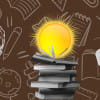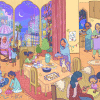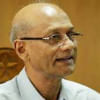Schools need to rethink how they teach Literature

Literature has always been my favourite subject. Stories and poems are my solace during tough times, and it was only natural for me to want to study English Literature for my O levels. You can only imagine what a shock it was when all my teachers began discouraging me from going down that path.
We're introduced to literature early in our lives, even before school, through lullabies and bedtime tales we are told as children. Fables of daring youth, wicked witches, candied houses, and ornate castles are our first taste of culture and heritage. Learned out of an academic setting, many of these stories become engraved into our minds.
As soon as a child's educational journey begins, everything they have learnt up till then is disregarded in favour of a more formal format. Suddenly, the stories they love do not seem as fun as they used to be.
When you have to answer a dozen questions from your favourite fairy tale and memorise the exact lines of a rhyme just to hurriedly scribble them down during a test, you tend to forget to actually enjoy what you are reading. Some schools even assess their students on summer reading material.
Usually, from third grade, students are assigned famous literary works to study. These range from abridged versions of Shakespeare's plays to poems by Wordsworth. On their own, they are quite indulgent to read. However, educational institutions are heavily dependent on repetitive learning methods like rote memorisation, although literature is meant to be speculative and open to interpretation. By neglecting an immersive learning experience for the kids, schools limit the creative and interpretive skills that could have been nurtured in them otherwise.

The older you get, the more tedious it becomes. Schools are resistant to novel perspectives, especially when it comes to old classics. The syllabuses are hardly ever subject to change. A lot of the time, children study the same pieces their parents did when they were in school.
Not to mention, many schools do not include a Literature course in their curriculum past the mandatory level. Students are dissuaded and even ridiculed for their interest in the subject, even by Literature teachers themselves.
Uzma Binte Ahmed, an eighth-grader at Maple Leaf International School, switched schools twice, and talks about her literary experience at each of them.
"For me, most of my learning of literature had been at Siddiqui's International School," says Uzma, "As an eight-year-old, I loved literature because of the way it was taught. We would have very engaging discussions, and by seventh grade, we had covered most of the classical works in their simple forms."
"However, when I switched to Manarat Dhaka International School & College, I found the way they taught literature to be extremely demoralising. They would hand-pick the most awful books ever, intending to prevent students from picking the subject for further studies. A lot of students protested against this, and it was a major reason for my shift to Maple Leaf International School later. Initially, I was the only student to select Literature for my O levels, along with History. Turns out, they did not even have a teacher for History, and I did Literature classes alone for a month or so before I convinced a few others to join me."
When asked why more students were not eager to continue literature despite its popularity, Uzma answered, "The way the subject is taught before eighth grade is horrible. It is just another way to discourage students from pursuing a path in the arts."
It is no secret that the arts are severely looked down upon in our country. From an early age, children are persuaded to strive for a career adjacent to the sciences or commerce. Artistic professions, such as music, literature and photography are seen as a hobby at best, and many even go to the length to call them "useless", as they are difficult to capitalise off of in our competitive world.
From personal experience, I can account for the ridicule a lot of Literature students have to face. I have been asked countless times why I chose the subject, and even after careful explanation, many still blatantly tell me that I have no definitive future in the field and that I should concentrate more on my other, more practical subjects.
The state of literature in schools is indeed a dismal one and requires much attention. If this is kept up, soon, very little of the population will be able to create and appreciate the beauty of the literary realm.
Literature is not just stories and poems read for amusement; it is the expression and interpretation of human emotion, an appeal for empathy during the direst times. It is vital that schools recognise this, and supply the patience and understanding to nurture it in young people.
Rubama Amreen wishes that exams never existed. Console her sorry self at [email protected].

 For all latest news, follow The Daily Star's Google News channel.
For all latest news, follow The Daily Star's Google News channel. 








Comments